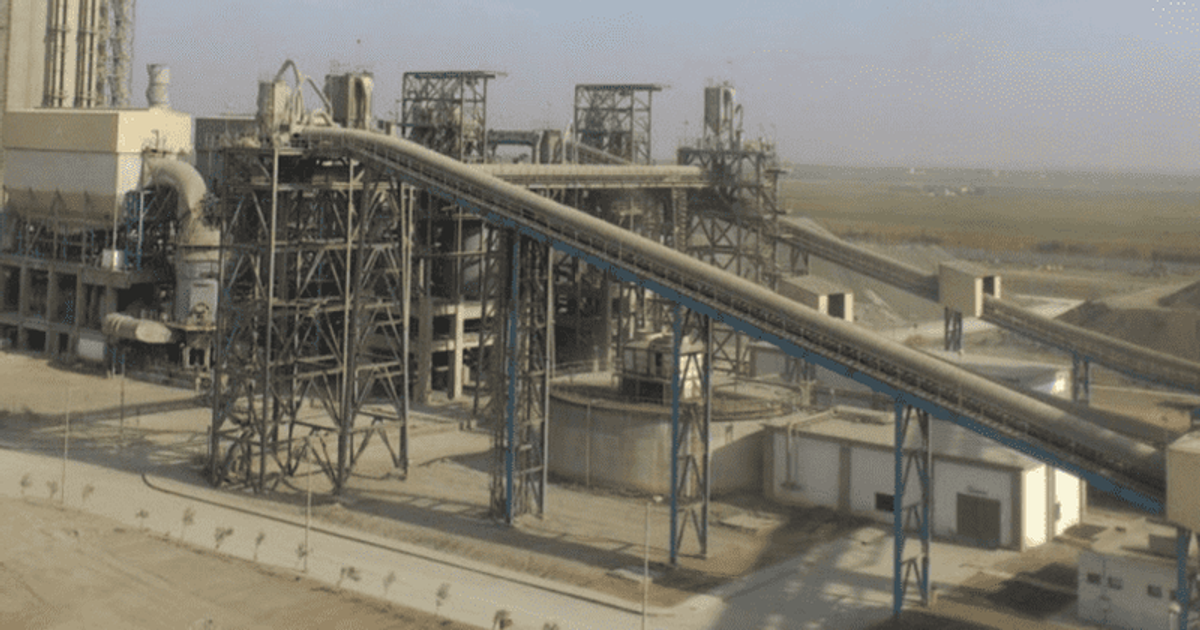What owns Lafarge? DOJ announces $778M fine for firm that partnered with ISIS 'for profit' and protection

WASHINGTON, DC: The US Department of Justice has announced a penalty for a multinational corporation that admitted to paying terrorist organizations in Syria for protection as well as sharing profits during the country’s civil war. Worldwide manufacturing company Lafarge will have to pay nearly $778 million in sanctions.
At a press conference held on Thursday, October 13, 2022, Breon Peace, the US Attorney for the Eastern District of New York, said that Lafarge pleaded guilty to providing material support to foreign terrorist organizations such as ISIS.
READ MORE
Hoda Muthana: ISIS bride who called for killing of Americans won't be allowed in US
Peace, while citing Lafarge SA and Lafarge Cement Syria SA as the companies and ISIS and the al-Nusrah Front (ANF) as the terrorist organizations, said, “Today, I announce the historic guilty pleas of two companies for conspiring to provide material support to foreign terrorist organizations,” adding, “These are the first companies ever charged by the Justice Department with providing material support to foreign terrorist organizations.”
Peace said that Lafarge had agreed to pay $777.78 million as a sentence. He said, “This sentence is well deserved because in 2013 and 2014, Lafarge made a deal with the devil — foreign terrorists who pledged to and in fact did harm the United States, its people, and its national security — for profit."
According to Law and Crime, Lafarge is a France-based company that manufactures cement and other materials in more than 60 countries worldwide. The Lafarge subsidiary Lafarge Cement Syria (LCS) operated a cement plant in Jalabiyeh from 2010 to 2014. As per the DOJ, the plant cost approximately $680 million to build.
As per DOJ, the civil unrest in Syria in 2011 led to ISIS and ANF taking control and committing “numerous terrorist acts” that resulted in the deaths of many US citizens. The following year, Lafarge and LCS started paying “various armed groups for protection,” Peace said.
He said, “By August 2013, if not earlier, some of those payments were made to ISIS and ANF, two groups that Lafarge knew were designated as foreign terrorist organizations by the United States.” Peace noted that the payments ensured the safety of LCS employees and the smooth operation of the plant.
The company received “vehicle passes” from ISIS which allowed employees, suppliers, and customers to pass checkpoints controlled by ISIS. The pass reads, “To the brothers at the checkpoints of Qarah Qawzak Bridge, may Allah keep you safe. Kindly allow the employees of Lafarge Cement Company to pass through after completing the necessary work and after paying their dues to us.”

The DOJ said that as time passed, the relationship between Lafarge and ISIS got closer, with the company also seeking “assistance in blocking or taxing competitors who imported cheaper cement into Syria from Turkey.”
In one such case, the DOJ noted that the executives of the company created a “backdated contract-termination agreement, falsely showing that the intermediary’s relationship with LCS was terminated on August 18, 2014, the business day after the UN Security Council called on member states to prohibit business relationships with ISIS.”
Peace said, “Let me pause to let that all sink in,” adding, “The defendants paid millions of dollars to ISIS, a terrorist group that otherwise operated on a shoestring budget. Millions of dollars that ISIS could use to recruit members, wage war against governments, and conduct brutal terrorist attacks worldwide, including against US citizens.”
The DOJ said that the civil war in Syria from August 2013 through 2014 brought Lafarge some $70.30 million in revenue, and they had “hoped to earn far more when the war ended and LCS could exploit its dominant position. This conduct, by a Western corporation, was appalling, and has no precedent or justification,” Peace said.
Meanwhile, in a statement, the company said, “Lafarge SA and LCS have accepted responsibility for the actions of the individual executives involved, whose behavior was in flagrant violation of Lafarge’s Code of Conduct.”
The statement added, “We deeply regret that this conduct occurred and have worked with the US Department of Justice to resolve this matter.”